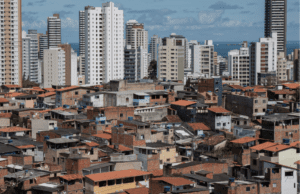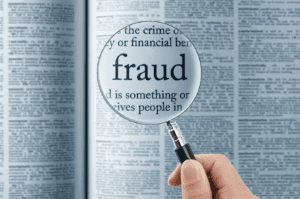How subsidies exacerbate inequality, grassroots groups successfully battling costly giveaways, and some good news cracking down on pandemic fraudsters. Plus: tax expert Dorothy Brown shares what she thinks of the Biden administration’s student loan forgiveness plan.
Arlene here, with updates on Good Jobs First’s very busy summer.
But first, Dr. Mehmet Oz spent millions putting in a new pool, spa and others upgrades to his Palm Beach, Florida, beachfront mansion. In exchange, the Miami Herald reports, he’ll get a years-long property tax break for it.
Other Palm Beach residents haven’t been so lucky: as rents have soared by 40% over the past year, local leaders declared a state of emergency, seeking help to build more affordable housing.
Let’s dive in.
Academics Find that Subsidies Exacerbate Inequality

Our work (especially our Subsidy Tracker and Violation Tracker data) has been used by hundreds of academics researching economic development practices and corporate behavior.
The findings are vast, varied, and fascinating, and we think deserve greater exposure. So we’ve launched a new blog series to highlight some academics’ findings.
First up, subsidies and rising inequality:
Researchers find that states with higher use of economic development subsidies also have higher levels of income inequality. The apparent link is that subsidies starve state and local economies’ tax bases so they have less to invest in programs such as food aid, health coverage, or affordable housing. These programs reduce poverty, especially among Black and Latinx children, and thus can reduce racial disparities. But with excessive subsidies, there is less money going to those community benefits.
Another article found incentives are likely to exacerbate inequality because they benefit owners of capital (i.e., corporate shareholders) while simultaneously reducing state or local government revenue.
Read the full blog post here.
Checking Corporate Welfare: Stories from the Front Lines

With Nonprofit Quarterly, Good Jobs First produced a series of articles looking at tax-break resisters. Economic development relies heavily on public subsidies – corporations extract as much as $95 billion each year from local and state governments, and it’s often unclear what, if anything valuable, communities get in return.
The series illustrates the active roles practitioners, community groups, school leaders and others are doing to build a people-centered economy that builds from the ground up. The stories are:
- How the Tax Subsidy Game Is Played: A Consultant Shares Corporate Secrets: Good Jobs First’s Greg LeRoy talks to a disaffected corporate site location consultant, C.J. Girod. Girod provides insight into how the game is played and importantly, has suggestions for fixing it.
- How a Louisiana Coalition Reined in Corporate Tax Exemptions: Together Louisiana’s Stephanie Riegel talks about how a community-based coalition won back control of local property taxes. But the victory is precarious, as corporations aggressively seek to roll things back.
- No More Hogs at the Trough—Containing Corporate Subsidies in Texas: Texas had one of the worst corporate welfare programs in the nation, but after a politically diverse coalition came together with powerful journalistic findings to say “no more,” it ended. But as in Louisiana, corporations are pushing to exhume the zombies.
- Saving Schools in Kansas City, Missouri: How We Reined in Corporate Subsidies: Kansas City Public Schools leaders leveraged a wonky-sounding accounting rule to show how corporate tax breaks are robbing students, with Black and Latinx students paying the most. Their fight continues, but armed with data and knowledge, they are winning changes.
- Reclaiming Public Tax Dollars: An Economic Justice Movement Gains Strength: In the series wrap-up, I write about the many ways communities are standing up to corporate greed, demanding better, and why I feel so heartened about the future.
Read the full series here.
You Can Run, But You Can’t Hide. WE HOPE.

We’ve been grumbling about the Paycheck Protection Program for years. It was rushed — though we realize it was an unprecedented time full of panic and unknowns, so haste was understandable. But there were also structural problems —little was done to ensure the money went directly to those least able to afford a missed paycheck, or to disqualify bad actors.
So we were cheered to hear the Biden administration is giving federal prosecutors more resources to fight pandemic fraud. The two pieces of legislation, the PPP and Bank Fraud Enforcement Harmonization Act of 2022 and the COVID-19 EIDL Fraud Statute of Limitations of 2022, extend the statute of limitations to investigate fraud by borrowers under PPP and the Economic Injury Disaster Relief Loan (EIDL) from five to 10 years.
Our Covid Stimulus Watch research analyst Katie Furtado has the details.
What Else We’re Talking About
- I asked Dorothy Brown, the author of “The Whiteness of Wealth: How the Tax System Impoverishes Black Americans – and How We Can Fix It” what she thought about the Biden administration’s plan to forgive some student loan debt. Here’s what she had to say.
- The Texas State Comptroller just released a new public database on a limitless corporate welfare program. The transparency is great, but our senior research analyst Kasia Tarczynska argues that for it to be useful, it must be more robust.
- What impact will the U.S. Supreme Court’s decision allowing for abortion bans have on business and worker location decisions? Our research intern Maja Ochojska asks the questions we’ll be looking to answer in the months and years ahead.
- Our Violation Tracker has tallied up corporate penalties of over $804 billion. Ever wondered where that money goes? Marketplace’s “I’ve Always Wondered” explains.
Until next time.
Arlene